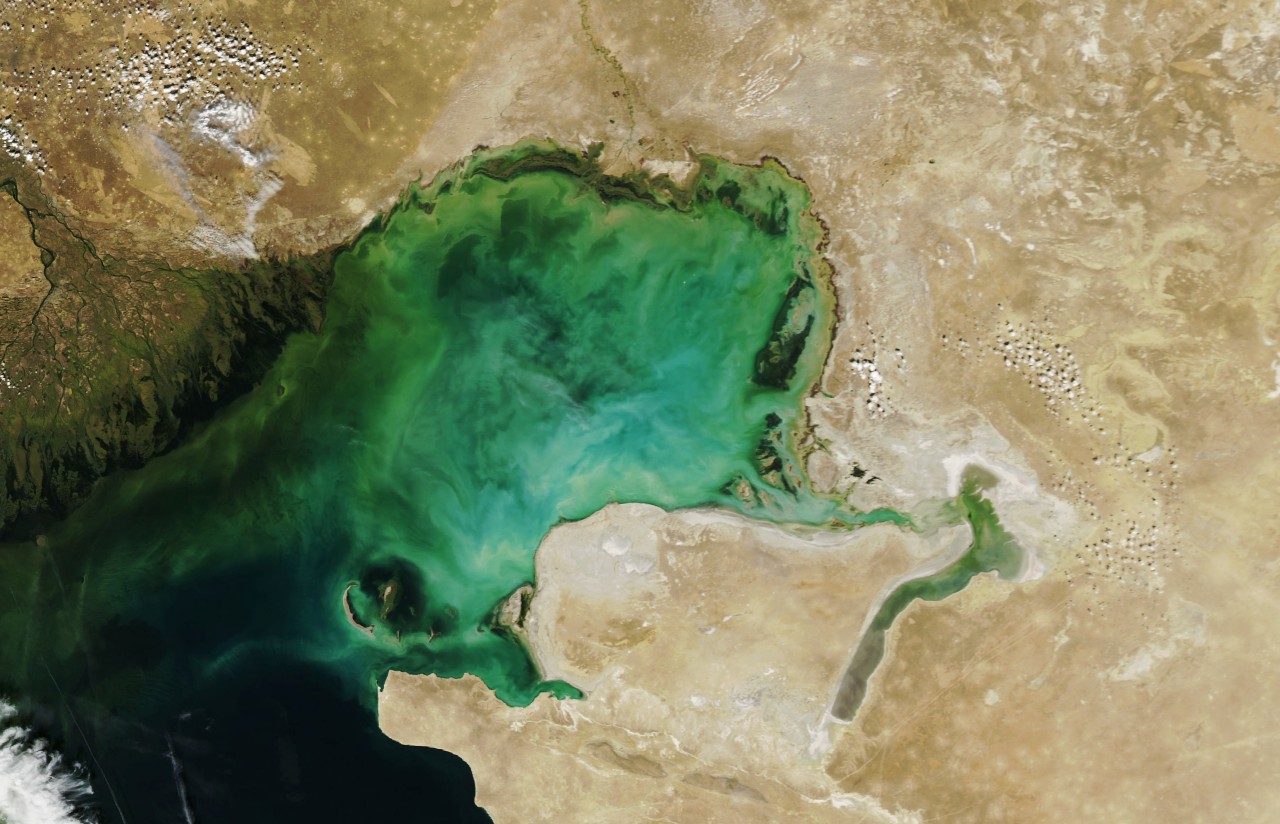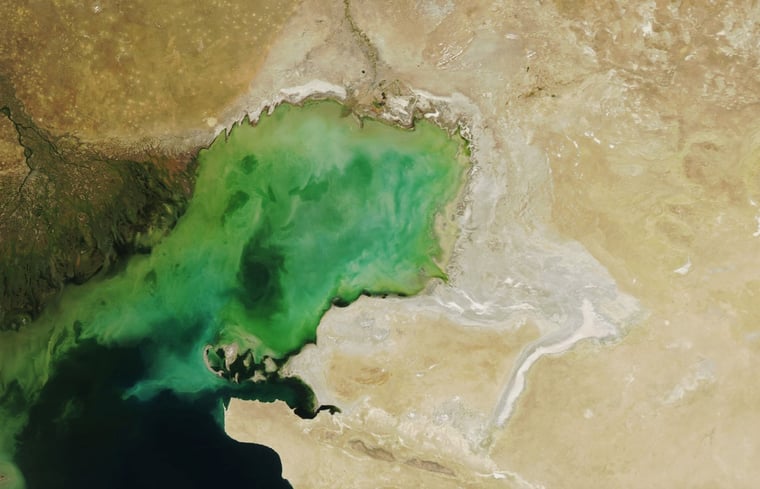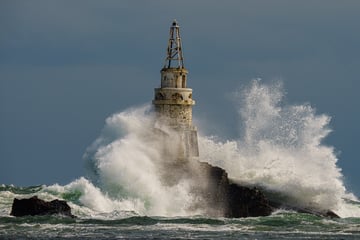The Caspian Sea, just like any large body of water, is affected somehow by climate change. While oceans have to deal with warming of the water and rising sea levels, the water level of the Caspian Sea is falling – and it’s not slowing down.
How does climate change impact ice charting, general weather forecasting and offshore operations here? As a weather company active in the Caspian area (in Atyrau, Kazakhstan), Infoplaza noticed how clients in the offshore industry experienced the effects firsthand.
Falling water level in the Caspian Sea
First, what’s happening in the Caspian Sea? Since approximately 1996, it has been noted that the water level is falling. It is estimated that by the year 2100, the level will be down between 9 to 18 meters. That’s a surface area shrinkage of 23 to 34 percent. Every year water evaporates, but it’s done so at such a rate for the last 27 years or so (averaging 7 cm per year) it hasn’t been compensated by precipitation and constant new ‘supply’ of river water.
 Northeastern Caspian Sea area in 2006. Image: NASA Earth Observatory
Northeastern Caspian Sea area in 2006. Image: NASA Earth Observatory
Challenges of climate change in the Caspian Sea
For us a weather company, climate change has not really affected how we operate our forecasts or metocean monitoring. But as we’ve described in our previous article on the economic impact of maritime conditions in the Caspian Sea, the falling water level is proving to be a major problem for several offshore operations.
For instance the logistics of keeping the Kashagan oil field running is heavily affected, as well as the planning for developing the rest of the field (only about 20% has been developed so far). When the area gets negative water level surges they have many knock-on effects: it can even cause shutdown of the wells. This happens for instance when evacuation vessels cannot navigate away from the islands.
As a result, water depth (and forecasted water depth) is the most important metric for us to monitor in the Caspian Sea area. To us that is proof that the effects of the climate change can seep through to many levels, down to the fact that business decisions have to be made around them.
We offer our expertise in monitoring any metocean situation. Allow us to guide you to a decision point:
I want to know more


